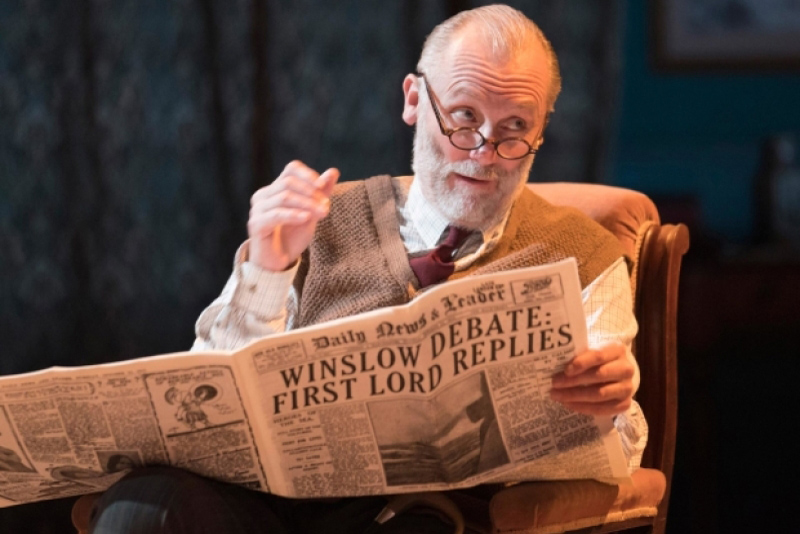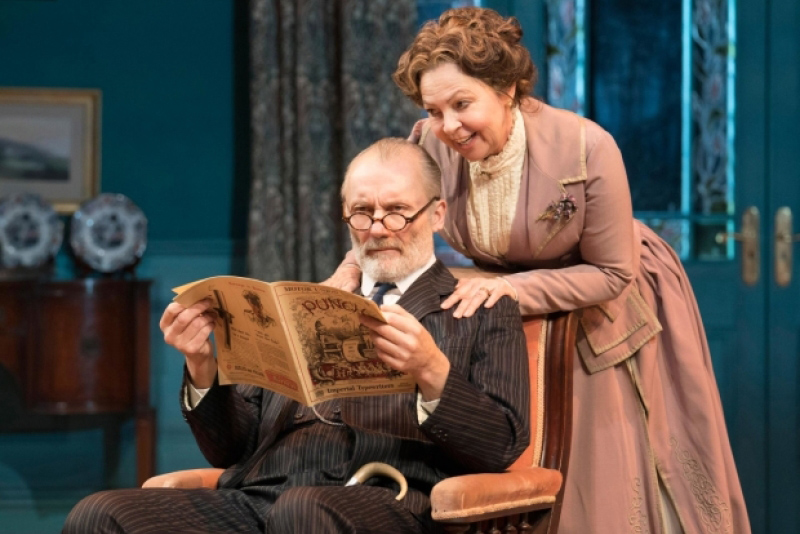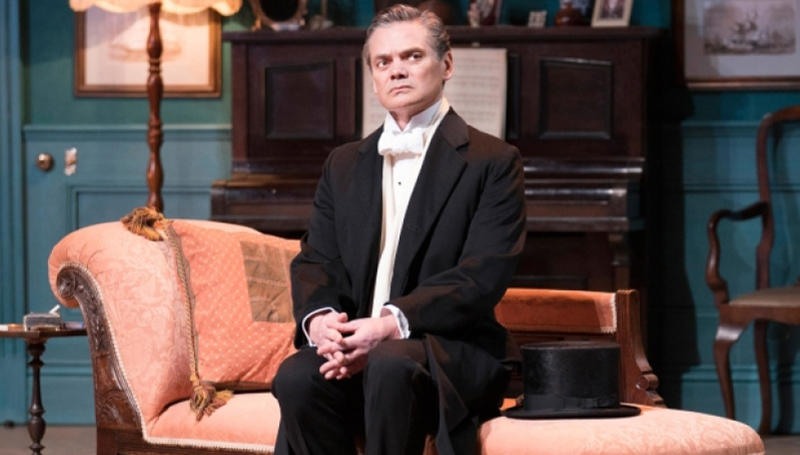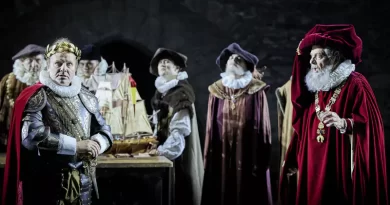“The Winslow Boy”: Chichester Festival Theatre
Jeremy Malies in West Sussex
13 February 2018
Observing the substantial number of school children at the Chichester Festival Theatre for a matinée performance of The Winslow Boy, I wondered if a play about the alleged theft of a postal order by an Edwardian naval cadet would make any sense to them. You can still buy postal orders (now slick affairs individually printed to your specification by the cashier) but in the era of PayPal they are surely outmoded.
Terence Rattigan’s play from 1946 was never merely the treatment of a cause célèbre. The events dated back to 1908 and Rattigan’s instinct in such matters meant that he recognized them as an example of how an individual case can become the embodiment of larger issues touching on equality before the law, British notions of fair play and the righting of an institutional injustice. His choice of subject matter has proved durable and even prescient.

Aden Gilett as Arthur Winslow in The Winslow Boy. Photo credit: Alastair Muir.
It’s a father’s compulsion to clear the family name that becomes the crux of the action. As Arthur Winslow, Aden Gillett is nuanced in portraying a once sprightly, witty and proud man broken by a crusade that ruins his finances and compromises his health. Vindication of son Ronnie comes at a considerable price. Again, there is a message for today as the cost of legal representation spirals and obstacles to accessing legal aid increase.
The play contains the greatest exit line in British drama. As the defence counsel (Sir Robert Morton), Timothy Watson conducts a breakneck syllable-perfect cross-examination of the cadet in which he sets multiple traps and offers a get-out that will mitigate guilt. Ronnie is unwavering and Watson positively sucks the oxygen from the theatre as he strides away. “The boy is plainly innocent. I accept the brief.” Stirring stuff and Watson proves adept at hinting that despite the acerbic exterior he has a flickering of romantic interest in Ronnie’s suffragette sister, Catherine, played by Dorothea Myer-Bennett.
There has been much focus on the fact that this production by Birmingham Repertory Theatre coincides with centenary celebrations of legislation that gave the vote in the UK to certain women over the age of thirty. Catherine has been dubbed by reviewers as “The Winslow Girl” and there are certainly hints in the text that she may be destined to become one of the first female Members of Parliament. For me, what is more interesting is that while her father harps on about judicial review and the Magna Carta, Catherine is the only character to see her brother’s plight in the startling new perspective of human rights.

Aden Gilett and Tessa Peake-Jones in The Winslow Boy. Photo credit: Alastair Muir.









